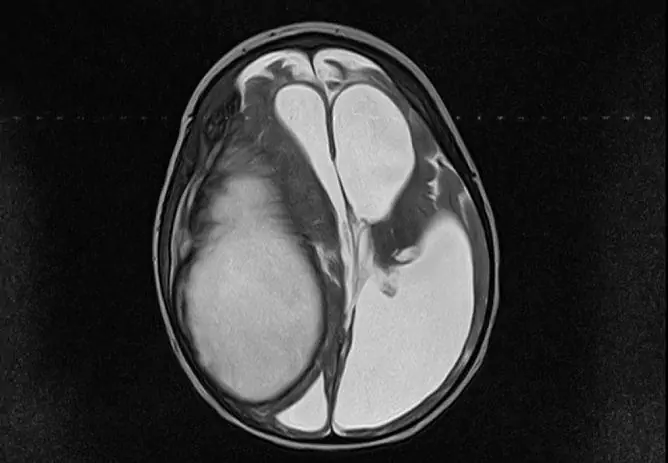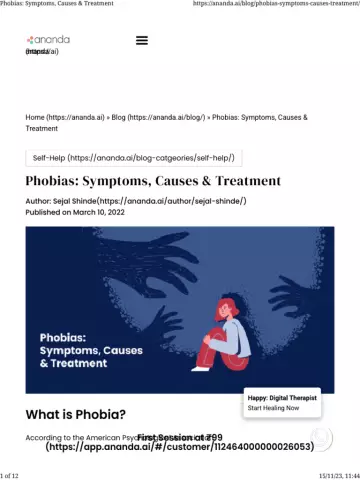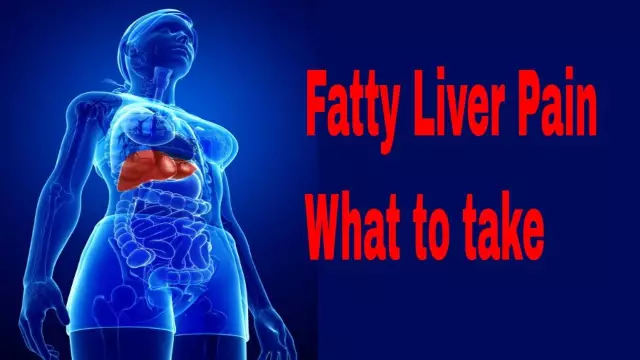- Author Rachel Wainwright wainwright@abchealthonline.com.
- Public 2023-12-15 07:39.
- Last modified 2025-11-02 20:14.
Hypersalivation
The content of the article:
- Causes
- Kinds
- Signs
- Diagnostics
- Treatment
- Prevention
- Consequences and complications
Hypersalivation (salivation, ptyalism) is an increased production of secretion by the salivary glands, that is, saliva. As a physiological phenomenon, ptyalism is observed in children of the first half of life. At any other age, increased saliva secretion indicates a particular pathology.
The salivary glands of an adult secrete about 2 liters of saliva per day. Normally, it does not flow out of the mouth; there should also be no need for frequent swallowing or spitting.

In children of the first half of life, hypersalivation is a physiological phenomenon.
Causes
Many diseases of different organs can lead to the occurrence of hypersalivation:
- diseases of the digestive system (stenosis of the esophagus, gastritis, gastric ulcer and duodenal ulcer, acute and chronic pancreatitis);
- diseases of the oral cavity (sialoadenitis, gingivitis, stomatitis, cheilitis);
- diseases of the nervous system (stroke, Parkinson's disease, brain tumors, inflammation of the trigeminal or facial nerve, bulbar palsy, vagotonia, neuroses);
- mental illness (psychoses, some forms of schizophrenia, mental retardation);
- infectious diseases (rabies, poliomyelitis, botulism, diphtheria);
- helminthic invasions (nematodes, cestodes, trematodes);
- hypovitaminosis of vitamin PP (nicotinic acid);
- poisoning with tin, copper, chlorine, bromine, iodine, mercury.
Hypersalivation can develop as a side effect of taking certain groups of drugs:
- lithium salts;
- M-cholinomimetics;
- anticonvulsants (anticonvulsants).

Taking lithium salts and certain medications can lead to hypersalivation
Kinds
Depending on the mechanism of development, hypersalivation is:
- True - associated with increased secretion of the salivary glands.
- False (pseudohypersalivation) is the result of a violation of the mechanism of swallowing saliva (against the background of tonsillitis, facial nerve lesions, cerebral palsy, etc.).
In accordance with the cause that caused true hypersalivation, there are:
- bulbar and pseudobulbar hypersalivation, that is, manifested in bulbar and pseudobulbar syndromes in vascular cerebral pathology, neurodegenerative diseases, poliomyelitis, etc.;
- somatic - caused by somatic pathology. Observed during radiation therapy, toxicosis of pregnant women, ulcerative stomatitis, helminthiasis, a number of malignant tumors;
- drug - a side effect of therapy with lithium or Nitrazepam;
- psychogenic - this is the rarest species, it develops under the influence of traumatic factors, and sometimes it is not possible to identify the cause.
Signs
With hypersalivation, patients complain of a rapid accumulation of saliva in the oral cavity, which forces them to make frequent swallowing movements. With severe ptyalism, saliva leaks from the corners of the mouth. This, in turn, leads to a violation of the integrity (maceration) of the skin of the chin and lower cheeks. When a secondary infection is attached, a pustular rash appears in the area of damage to the skin.

With hypersalivation, saliva quickly accumulates in the oral cavity and leaks from the corners of the mouth
Diagnostics
Diagnosis of hypersalivation does not cause difficulties, it is much more difficult to find out the cause of its occurrence. For this, an anamnesis is carefully collected, then the functional activity of the salivary glands is examined. With true hypersalivation, over 10 ml of saliva is secreted in a patient in 20 minutes (the norm is from 1 to 4 ml).
Depending on the data of the anamnesis and the initial examination, the patient is sent for consultation to narrow specialists (gastroenterologist, dentist, neurologist, infectious disease specialist, psychiatrist).
Treatment
Etiotropic therapy of hypersalivation is aimed at the primary disease, the symptom of which was increased salivation.
To reduce the secretion of saliva, apply:
- rinsing the mouth with astringent solutions (for example, a decoction of oak bark);
- drugs of the group of anticholinergics or anticholinergics.
If the therapy of hypersalivation is ineffective, in severe cases, the salivary glands are irradiated or surgically removed.

A decoction of oak bark helps with hypersalivation
In cases where hypersalivation is due to weakness of the facial muscles, massage and special exercises are prescribed.
Also, in order to stop persistent hypersalivation, they resort to injections of botulinum toxin (Botox) into the tissue of the parotid salivary glands. This procedure can be performed on an outpatient basis, since it is accompanied by an extremely low percentage of complications. The effect of a single injection of Botox lasts for 6-8 months, after which the injections are repeated.
Prevention
Prevention of hypersalivation consists in carrying out preventive measures aimed at preventing helminthic invasions, diseases of the oral cavity and gastrointestinal tract, cerebral circulation disorders and other pathologies that can cause ptyalism.
Consequences and complications
In severe cases of hypersalivation, patients experience damage to the skin of the face, associated with the irritating effect of saliva. In a number of patients, hypersalivation becomes the cause of the development of a depressive state.
YouTube video related to the article:

Elena Minkina Doctor anesthesiologist-resuscitator About the author
Education: graduated from the Tashkent State Medical Institute, specializing in general medicine in 1991. Repeatedly passed refresher courses.
Work experience: anesthesiologist-resuscitator of the city maternity complex, resuscitator of the hemodialysis department.
The information is generalized and provided for informational purposes only. At the first sign of illness, see your doctor. Self-medication is hazardous to health!






